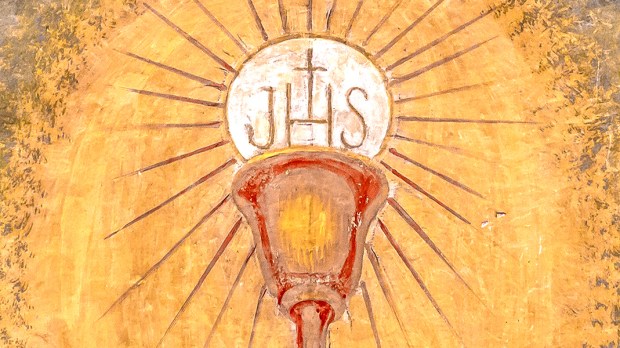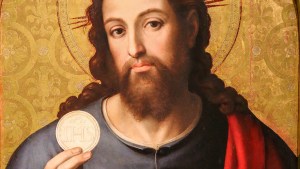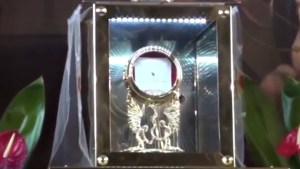St. Irenaeus lived from about 130 – 202, and his writings provide an early witness to the Church’s beliefs about the Eucharist.
He writes in his book Against Heresies that something extraordinary happens at Mass.
For as the bread, which is produced from the earth, when it receives the invocation of God, is no longer common bread, but the Eucharist, consisting of two realities, earthly and heavenly; so also our bodies, when they receive the Eucharist, are no longer corruptible, having the hope of the resurrection to eternity.
St. Irenaeus points out that the bread and wine experiences a transformation at Mass at the words of consecration, turning them into something new, both heavenly and earthly.
In a different part of his book he reveals what exactly they change into.
[Jesus] has acknowledged the cup (which is a part of the creation) as His own blood, from which He bedews our blood; and the bread (also a part of the creation) He has established as His own body, from which He gives increase to our bodies.
This is consistent with what the Catechism of the Catholic Church currently states.
By the consecration the transubstantiation of the bread and wine into the Body and Blood of Christ is brought about. Under the consecrated species of bread and wine Christ himself, living and glorious, is present in a true, real, and substantial manner: his Body and his Blood, with his soul and his divinity
CCC 1413
St. Irenaeus was simply stating something the Church has never ceased to teach about the Eucharist: that the bread and wine become, through the power of God, the body and blood of Jesus Christ.



